Martin Luther University of Halle-Wittenberg: Statistics
Updated:
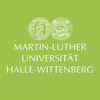

| Position | Category |
|---|---|
| #379 of 14,131 | In the World |
| #152 of 2,785 | In Europe |
| #32 of 369 | In Germany |
| #1 of 9 | In Saxony-Anhalt |
| #1 of 3 | In Halle |
| #8 of 1,015 | For Polymer science and Plastics engineering |
| Top50% | For 163 other topics |
Quick Review
- Acceptance rate
- 50%
- Enrollment
- 20,390
- Type
- Non-profit
- Funding
- Public-private
partnership - Highest Degree
- Doctorate
- Website
- uni-halle.de
- Languages
- German
Acceptance rate & Admissions
| Acceptance Rate | 50% |
|---|---|
| Admissions Requirements | Secondary school certificate (Reifezeugnis) or equivalent |
| Academic Calendar | October to September (October - March; April-September) |
| Enrollment | 20,390 |
We've calculated the 50% acceptance rate for Martin Luther University of Halle-Wittenberg based on the ratio of admissions to applications and other circumstantial enrollment data. Treat this information as a rough guide and not as a definitive measure of your chances of admission. Different programs may have significantly varying admissions rates.
Research profile
Martin Luther University of Halle-Wittenberg is a world-class research university with 69,896 scientific papers published and 1,296,322 citations received. The research profile covers a range of fields, including Chemistry, Biology, Physics, Engineering, Organic Chemistry, Quantum and Particle physics, Materials Science, Medicine, Biochemistry, and Environmental Science.
Martin Luther University of Halle-Wittenberg majors
by publication & citation count
Annual publication & citation counts
| Year | Publications | Citations |
|---|---|---|
| 1992 | 288 | 2408 |
| 1993 | 405 | 2296 |
| 1994 | 424 | 2676 |
| 1995 | 476 | 3197 |
| 1996 | 585 | 3639 |
| 1997 | 803 | 3850 |
| 1998 | 919 | 5472 |
| 1999 | 1055 | 5501 |
| 2000 | 1004 | 6953 |
| 2001 | 1076 | 8749 |
| 2002 | 1122 | 10443 |
| 2003 | 1072 | 13254 |
| 2004 | 1210 | 15316 |
| 2005 | 1174 | 19337 |
| 2006 | 1359 | 21119 |
| 2007 | 2731 | 23892 |
| 2008 | 5816 | 27008 |
| 2009 | 2139 | 30154 |
| 2010 | 2483 | 33378 |
| 2011 | 1471 | 36961 |
| 2012 | 1560 | 41635 |
| 2013 | 1996 | 46257 |
| 2014 | 1861 | 50177 |
| 2015 | 2285 | 52575 |
| 2016 | 2263 | 56587 |
| 2017 | 6088 | 60568 |
| 2018 | 4701 | 65858 |
| 2019 | 2231 | 75117 |
| 2020 | 2623 | 92015 |
| 2021 | 2638 | 107805 |
| 2022 | 2564 | 107182 |
| 2023 | 2228 | 109154 |
| 2024 | 1975 | 108958 |
Tuition
The tuition table for Martin Luther University of Halle-Wittenberg gives an overview of costs but prices are approximate and subject to change and don't include accommodation, textbooks, or living expenses. The costs of programs might differ significantly for local and international students. The only source of truth for current numbers is the university's official website.
| Program | Tuition Cost (per semester) |
|---|---|
| Bachelor's Degree | Free |
| Master's Degree | €650 |
| Doctoral Degree | Free |
The currency used is Euro (€).
The Martin Luther University of Halle-Wittenberg has financial aid programs.
Programs and Degrees
The table below displays academic fields with programs and courses that lead to Bachelor's, Master's, and Doctorate degrees offered by Martin Luther University of Halle-Wittenberg.
Note that the table provides a general overview and might not cover all the specific majors available at the university. Always visit the university's website for the most up-to-date information on the programs offered.
| Programs | Bachelor | Master | Doctoral |
|---|---|---|---|
| Art & Design | Yes | Yes | Yes |
| Biology | Yes | Yes | Yes |
| Business | Yes | Yes | Yes |
| Chemistry | Yes | Yes | Yes |
| Computer Science | Yes | Yes | Yes |
| Economics | Yes | Yes | Yes |
| Engineering | Yes | Yes | Yes |
| Environmental Science | Yes | Yes | Yes |
| Liberal Arts & Social Sciences | Yes | Yes | Yes |
| Mathematics | Yes | Yes | Yes |
| Medicine | Yes | Yes | Yes |
| Physics | Yes | Yes | Yes |
| Psychology | Yes | Yes | Yes |
| Bachelor's Degree | Agriculture, American Studies, Ancient Civilizations, Ancient Languages, Arabic, Archaeology, Art History, Biochemistry, Biological and Life Sciences, Biology, Business Administration, Business Computing, Chemistry, Classical Languages, Computer Science, Cultural Studies, Earth Sciences, Economics, Educational Sciences, English, English Studies, Environmental Management, Ethnology, European Studies, Food Science, French, Geography (Human), German, Health Sciences, History, Information Technology, Islamic Studies, Italian, Jewish Studies, Latin, Linguistics, Literature, Management, Mass Communication, Mathematics, Media Studies, Medical Technology, Modern Languages, Music, Natural Resources, Nordic Studies, Philosophy, Physics, Polish, Political Sciences, Protestant Theology, Psychology, Romance Languages, Russian, Slavic Languages, Sociology, South Asian Studies, Spanish, Sports |
|---|---|
| Konzertexamen | Musical Instruments, Singing |
| Kirchliche Abschlussprüfung | Protestant Theology |
| Master | Accountancy, Agriculture, American Studies, Anthropology, Applied Mathematics, Arabic, Archaeology, Art History, Biochemistry, Biology, Biomedical Engineering, Biotechnology, Business Administration, Business Computing, Chemistry, Christian Religious Studies, Classical Languages, Commercial Law, Comparative Literature, Computer Science, East Asian Studies, Eastern European Studies, Educational Sciences, English, English Studies, Ethics, Ethnology, Finance, Foreign Languages Education, French, Geology, Germanic Studies, Health Sciences, Heritage Preservation, History, Human Resources, Indic Languages, International Business, International Studies, Islamic Studies, Italian, Japanese, Jewish Studies, Latin, Law, Literature, Mathematics, Media Studies, Medicine, Multimedia, Music Education, Musicology, Natural Sciences, Nutrition, Philosophy, Physics, Political Sciences, Polymer and Plastics Technology, Prehistory, Protestant Theology, Psychology, Radio and Television Broadcasting, Romance Languages, Romanian, Singing, Slavic Languages, Sociology, South Asian Studies, Spanish, Speech Studies, Sports, Taxation |
| PhD | Asian Studies, European Studies, Health Sciences, Literature, Modern Languages, Philosophy, Rehabilitation and Therapy, Social Studies |
Martin Luther University of Halle-Wittenberg alumni
-
George Frideric Handel
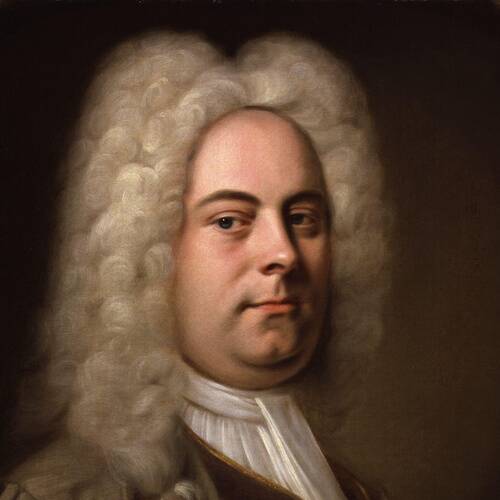
- Enrolled in the Martin Luther University of Halle-Wittenberg
- Studied in 1702-1703
- Occupations
- opera composercomposerimpresarioorganistuniversity teacher
- Biography
-
George Frideric Handel was a German-British Baroque composer well-known for his operas, oratorios, anthems, concerti grossi, and organ concertos. Handel received his training in Halle and worked as a composer in Hamburg and Italy before settling in London in 1712, where he spent the bulk of his career and became a naturalised British subject in 1727. He was strongly influenced both by the middle-German polyphonic choral tradition and by composers of the Italian Baroque. In turn, Handel's music forms one of the peaks of the "high baroque" style, bringing Italian opera to its highest development, creating the genres of English oratorio and organ concerto, and introducing a new style into English church music. He is consistently recognized as one of the greatest composers of his age.
-
Edmund Husserl

- Occupations
- phenomenologistmathematicianphilosopheruniversity teacher
- Biography
-
Edmund Gustav Albrecht Husserl was an Austrian-German philosopher and mathematician who established the school of phenomenology.
-
Oswald Spengler

- Enrolled in the Martin Luther University of Halle-Wittenberg
- Graduated with Doctor of Philosophy in philosophy
- Occupations
- sociologistwriterhistorianphilosophermathematician
- Biography
-
Oswald Arnold Gottfried Spengler was a German polymath whose areas of interest included history, philosophy, mathematics, science, and art, as well as their relation to his organic theory of history. He is best known for his two-volume work The Decline of the West (Der Untergang des Abendlandes), published in 1918 and 1922, covering human history. Spengler's model of history postulates that human cultures and civilizations are akin to biological entities, each with a limited, predictable, and deterministic lifespan.
-
Georg Cantor

- Occupations
- philosopheruniversity teachermathematician
- Biography
-
Georg Ferdinand Ludwig Philipp Cantor was a mathematician who played a pivotal role in the creation of set theory, which has become a fundamental theory in mathematics. Cantor established the importance of one-to-one correspondence between the members of two sets, defined infinite and well-ordered sets, and proved that the real numbers are more numerous than the natural numbers. Cantor's method of proof of this theorem implies the existence of an infinity of infinities. He defined the cardinal and ordinal numbers and their arithmetic. Cantor's work is of great philosophical interest, a fact he was well aware of.
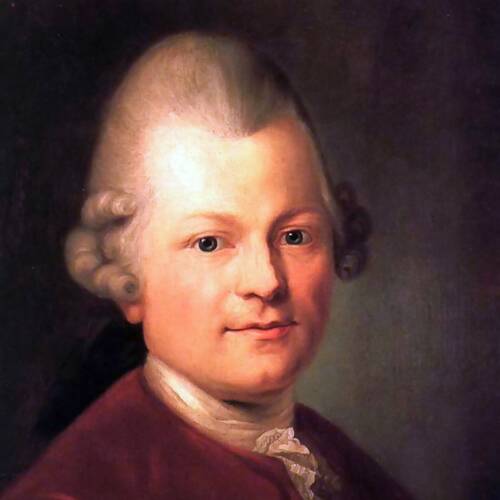
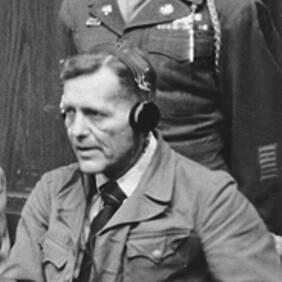

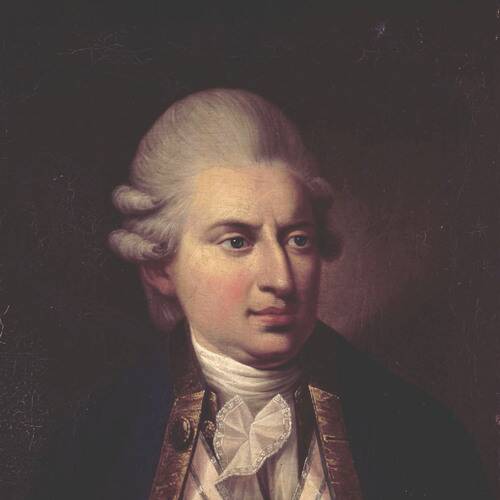

Martin Luther University of Halle-Wittenberg faculties and divisions
| Centre : Engineering Sciences | Engineering |
|---|---|
| Faculty : Law, Economics and Business | Business Administration, Business Computing, Economics, Law |
| Faculty : Medicine | Anatomy, Dentistry, Genetics, Hygiene, Medicine, Occupational Therapy, Pathology, Pharmacology, Physiology, Toxicology |
| Faculty : Natural Sciences I | Biochemistry, Biology, Biotechnology, Natural Sciences, Pharmacy |
| Faculty : Natural Sciences II | Chemistry, Mathematics, Physics |
| Faculty : Natural Sciences III | Agriculture, Computer Science, Food Science, Geology, Mathematics, Natural Sciences |
| Faculty : Philosophy I | Ethnology, Japanese, Oriental Studies, Philosophy, Political Sciences, Psychology, Sociology |
| Faculty : Philosophy II | American Studies, Arts and Humanities, Communication Studies, English, English Studies, Media Studies, Music, Philology, Phonetics, Romance Languages, Slavic Languages, Sports |
| Faculty : Philosophy III | Arts and Humanities, Education, Educational Sciences, Pedagogy, Teacher Training |
| Faculty : Theology | Archaeology, Bible, Religious Art, Religious Studies, Theology |
General information
| Alternative names | Martin-Luther-Universität Halle-Wittenberg |
|---|---|
| Founded | 1817 |
| Motto | Zukunft mit Tradition |
| Colors | emerald green |
Location and contacts
| Address | Universitätsplatz 10 Halle, Saale, 06099 Germany |
|---|---|
| City population | 242,000 |


